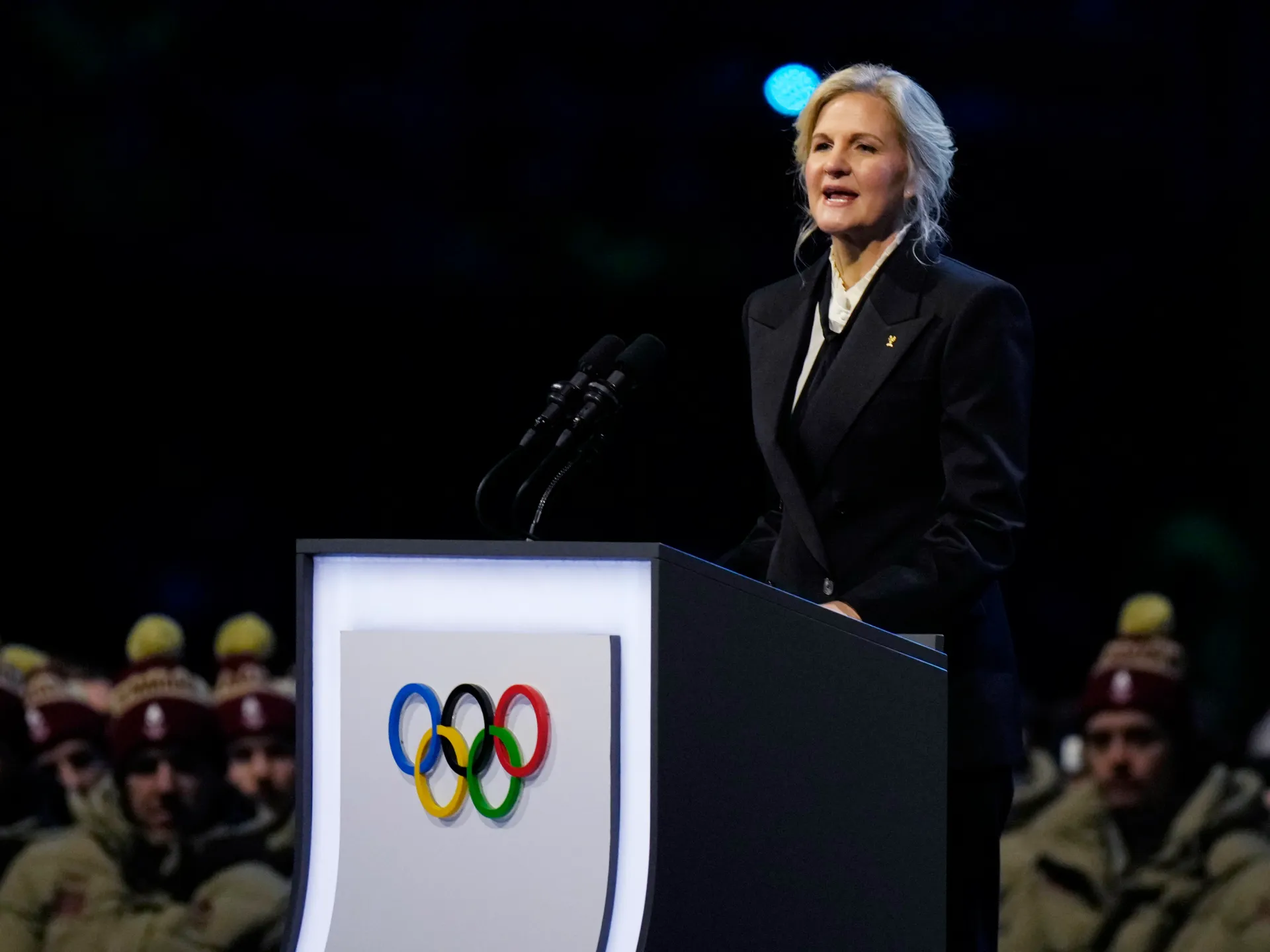The U.S. Department of Education has given San José State 10 days to comply with a list of demands after finding that the university violated Title IX concerning a transgender volleyball player in 2024.
A federal investigation was launched into San José State a year ago after controversy over a transgender player marred the 2024 volleyball season. Four Mountain West Conference teams — Boise State, Wyoming, Utah State and Nevada-Reno — each chose to forfeit or cancel two conference matches to San José State. Boise State also forfeited its conference tournament semifinal match to the Spartans.
The transgender player, Blaire Fleming, was on the San José State roster for three seasons after transferring from Coastal Carolina, although opponents protested the player’s participation only in 2024.
In a news release Wednesday, the Education Department warned that San José State risks “imminent enforcement action” if it doesn’t voluntarily resolve the violations by taking the following actions, not all of which pertain solely to sports:
1) Issue a public statement that SJSU will adopt biology-based definitions of the words “male” and “female” and acknowledge that the sex of a human — male or female — is unchangeable.
2) Specify that SJSU will follow Title IX by separating sports and intimate facilities based on biological sex.
3) State that SJSU will not delegate its obligation to comply with Title IX to any external association or entity and will not contract with any entity that discriminates on the basis of sex.
4) Restore to female athletes all individual athletic records and titles misappropriated by male athletes competing in women’s categories, and issue a personalized letter of apology on behalf of SJSU to each female athlete for allowing her participation in athletics to be marred by sex discrimination.
5) Send a personalized apology to every woman who played in SJSU’s women’s indoor volleyball from 2022 to 2024, beach volleyball in 2023, and to any woman on a team that forfeited rather than compete against SJSU while a male student was on the roster — expressing sincere regret for placing female athletes in that position.
“SJSU caused significant harm to female athletes by allowing a male to compete on the women’s volleyball team — creating unfairness in competition, compromising safety, and denying women equal opportunities in athletics, including scholarships and playing time,” Kimberly Richey, Education Department assistant secretary for civil rights, said.
“Even worse, when female athletes spoke out, SJSU retaliated — ignoring sex-discrimination claims while subjecting one female SJSU athlete to a Title IX complaint for allegedly ‘misgendering’ the male athlete competing on a women’s team. This is unacceptable.”
San José State responded with a statement acknowledging that the Education Department had informed the university of its investigation and findings.
“The University is in the process of reviewing the Department’s findings and proposed resolution agreement,” the statement said. “We remain committed to providing a safe, respectful, and inclusive educational environment for all students while complying with applicable laws and regulations.”
In a New York Times profile, Fleming said she learned about transgender identity when she was in eighth grade. “It was a lightbulb moment,” she said. “I felt this huge relief and a weight off my shoulders. It made so much sense.”
With the support of her mother and stepfather, Fleming worked with a therapist and a doctor and started to socially and medically transition, according to the Times. When she joined the high school girls’ volleyball team, her coaches and teammates knew she was transgender and accepted her.
Fleming’s first two years at San José State were uneventful, but in 2024 co-captain Brooke Slusser joined lawsuits against the NCAA, the Mountain West Conference and representatives of San José State after alleging she shared hotel rooms and locker rooms with Fleming without being told she is transgender.
The Education Department also determined that Fleming and a Colorado State player conspired to spike Slusser in the face, although a Mountain West investigation found “insufficient evidence to corroborate the allegations of misconduct.” Slusser was not spiked in the face during the match.
President Trump signed an executive order a year ago designed to ban transgender athletes from competing on girls’ and women’s sports teams. The order stated that educational institutions and athletic associations may not ignore “fundamental biological truths between the two sexes.” The NCAA responded by banning transgender athletes.
The order, titled “Keeping Men Out of Women’s Sports,” gives federal agencies, including the Justice and Education departments, wide latitude to ensure entities that receive federal funding abide by Title IX in alignment with the Trump administration’s view, which interprets a person’s sex as the gender they were assigned at birth.
San José State has been in the federal government’s crosshairs ever since. If the university does not comply voluntarily to the actions listed by the government, it could face a Justice Department lawsuit and risk losing federal funding.
“We will not relent until SJSU is held to account for these abuses and commits to upholding Title IX to protect future athletes from the same indignities,” Richey said.
San José State was found in violation of Title IX in an unrelated case in 2021 and paid $1.6 million to more than a dozen female athletes after the Department of Justice found that the university failed to properly handle the students’ allegations of sexual abuse by a former athletic trainer.
The federal investigation found that San José State did not take adequate action in response to the athletes’ reports and retaliated against two employees who raised repeated concerns about Scott Shaw, the former director of sports medicine. Shaw was sentenced to 24 months in prison for unlawfully touching female student-athletes under the guise of providing medical treatment.
The current findings against San José State came two weeks after federal investigators announced that the California Community College Athletic Assn. and four other state colleges and school districts are the targets of a probe over whether their transgender participation policies violate Title IX.
The investigation targets a California Community College Athletic Assn. rule that allows transgender and nonbinary students to participate on women’s sports teams if the students have completed “at least one calendar year of testosterone suppression.”
Also, the Education Department’s Office of Civil Rights has launched 18 Title IX investigations into school districts across the United States on the heels of the Supreme Court hearing oral arguments on efforts to protect women’s and girls’ sports.

